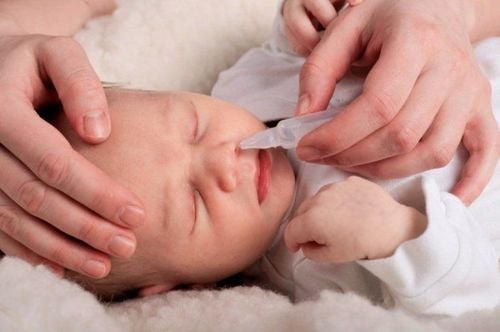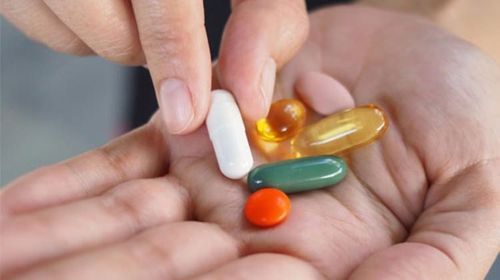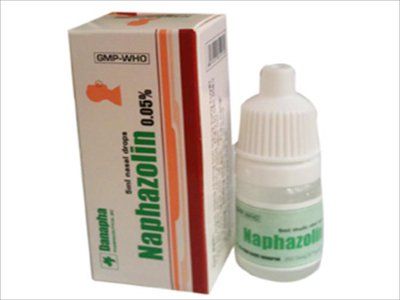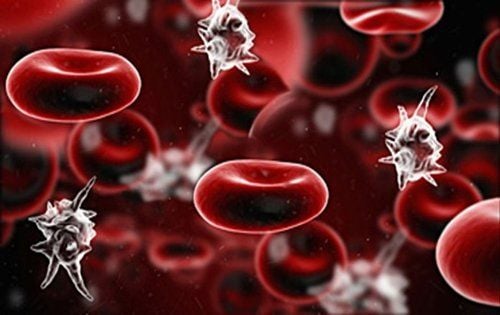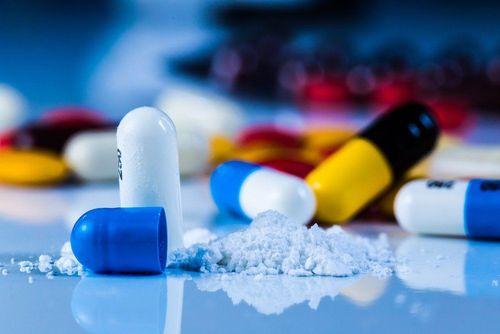This is an automatically translated article.
Septic shock reduces tissue perfusion, increases cardiac output, and carries a high risk of mortality. In the treatment of shock, vasopressors are the initial choice to achieve mean blood pressure and improve tissue perfusion.
1. What are vasopressors?
Vasopressors, also known as vasopressors, are drugs commonly used in the treatment of shock including septic shock, neurogenic shock, cardiogenic shock, .... Common vasopressor drugs include: Phenylephrine, Norepinephrine, Epinephrine, Dopamine, Vasopressin, Dobutamine (increases vasoconstriction). Typically, vasopressors are started when the shock patient is hypotensive but has undergone resuscitation with adequate fluids. When low cardiac output is present, the patient should be considered for inotropic dobutamine.
2. Objectives of using vasopressors in the treatment of shock
The first step in treating shock is intensive resuscitation to restore tidal volume and manage the cause of septic shock. After adequate infusion to restore tidal volume but the patient is still not hypotensive, vasopressors are used to achieve the following goals:
Stabilize respiratory status, balance supply and consumption absorb oxygen. Improve and restore tissue perfusion, tissue oxygen supply, tissue metabolism, visceral perfusion. The mean blood pressure should be 65-70 mmHg. Blood hemoglobin oxygen saturation (SvO2) above 65 - 70%. Improve lactate in arterial blood. Improve and maintain the function of some organs and organs (urine flow > 0.5ml/kg/h, ...)
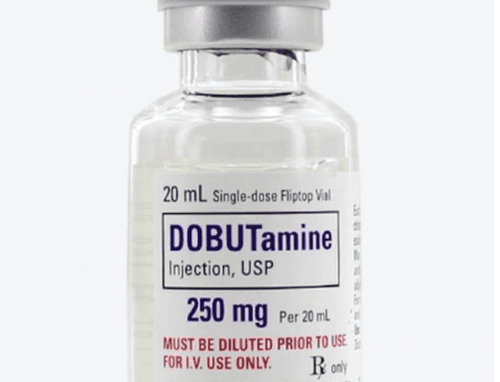
Dobutamine là một trong những thuốc vận mạch thường được sử dụng trong điều trị sốc
MORE: General principles when using vasopressors
3. Selection of vasopressors in shock treatment
3.1 Mechanism of action of vasopressors
Norepinephrine: Acts on 02 receptors, alpha 1 and beta 1, has a strong vasoconstrictor effect and slightly increases cardiac output, increases blood pressure and slows heart rate. Norepinephrine is commonly used in the treatment of septic shock. Epinephrine: Acts on beta 1, beta 2 and alpha 1 receptors with a gradual to moderate intensity, has the effect of increasing cardiac output and reducing peripheral resistance. Epinephrine is commonly used in the treatment of anaphylaxis and is the second choice in the treatment of septic shock. Dopamine: With a light dose of 1-2 mcg/kg/min, Dopamine acts on dopamine 1 receptors and dilates arteries in the brain, heart, intestines, kidneys; with an average dose of 5-10 mcg/kg/min, the drug acts on beta 1 receptors and increases cardiac output; At high doses above 10 mcg/kg/min, the drug acts on alpha receptors and causes vasoconstriction, increasing peripheral resistance. Dopamine is commonly used to lower blood pressure in septic shock. In case of heart failure, Dopamine should be used in low doses and gradually increased to achieve therapeutic effect. Phenylephrine: Acts mainly on alpha 1 receptors, but not as strong as Norepinephrine, has vasoconstrictor effects, increases blood pressure and peripheral resistance. Phenylephrine is commonly used in the treatment of septic shock, neurological disorders, hypotension during anesthesia. Vasopressin: Acts on V1 receptors in vascular smooth muscle, increases peripheral vasoconstriction, and at the same time affects other hypertensive agents. Vasopressin should not be used in high doses (>0.04 units/min) because of ischemia. Vasopressin stimulates diuresis and is commonly used in the treatment of septic shock. Dobutamine: A synthetic vasoconstrictor drug that acts strongly on 2 beta 1 and beta 2 receptors (in the ratio 3:1), has the effect of increasing myocardial vasoconstriction. Dobutamine at low doses has a significant antihypertensive effect. On beta 1 receptors, Dobutamine increases cardiac output, on alpha and beta 2 receptors, low doses of Dobutamine increase cardiac output and vasodilation, reducing peripheral resistance. Dobutamine is often used in refractory heart failure and cardiogenic shock, not in septic shock because it lowers blood pressure. SEE ALSO: Using vasopressors against infection
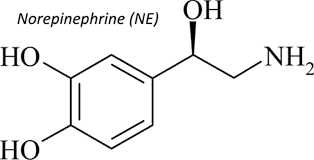
Norepinephrine làm tăng cung lượng tim mức độ nhẹ
3.2 Criteria for selection of vasopressors in shock treatment
Selection of vasopressors based on criteria of cause of shock, desired therapeutic goal, receptor activity: Alpha 1 receptors act on arterial smooth muscle cells and cause vasoconstriction , increasing systemic resistance, while beta 1 receptors enhance myocardial contractility. Hyperactive or hypoactive septic shock:
Hyperkinetic shock: Norepinephrine and Phenylephrine act effectively on alpha receptors to cause vasoconstriction and should be used in the treatment of septic shock in patients with hyperactive conditions such as hypotension, Peripheral resistance decreases, cardiac output increases, extremities warm. Hypodynamic shock: Dopamine is preferred because of its ability to increase mean arterial pressure and reduce peripheral resistance in patients with septic shock with hypodynamic conditions such as hypotension, slightly decreased peripheral resistance. , decreased cardiac output, cold extremities. However, Dopamine has a side effect of causing arrhythmia and if used alone will not achieve the therapeutic goal, then norepinephrine should be chosen. Some other notes when choosing vasopressors in the treatment of shock are:
Dopamine mild doses of 1-3 mcg/kg/min can cause hypotension and tachycardia. Therefore, to protect the kidneys, the mean arterial pressure should be increased to >65 mmHg and be careful not to cause vasoconstriction.
In fact, the septic shock itself carries a high risk of death, not the vasopressor vasopressor drug Norepinephrine, which leads to an increased risk of death. In contrast, many studies have shown that the use of vasopressors in the treatment of shock is necessary to maintain the body's circulation, while treating the cause of shock to stabilize the condition.
4. Use of vasopressors in shock treatment
According to ACCF/AHA guidelines for the management of heart failure, vasopressors are not recommended for use in the presence of signs of cardiogenic shock. Meanwhile, according to the ACC/AHA guidelines, vasopressors are recommended in case of ST-segment elevation myocardial infarction with or without inotropic therapy.
In the case of patients with systolic blood pressure in the range of 70-100 mmHg, dobutamine is recommended in the absence of shock and if in shock, dopamine should be used. In patients with blood pressure less than 70 mmHg, norepinephrine should be used.
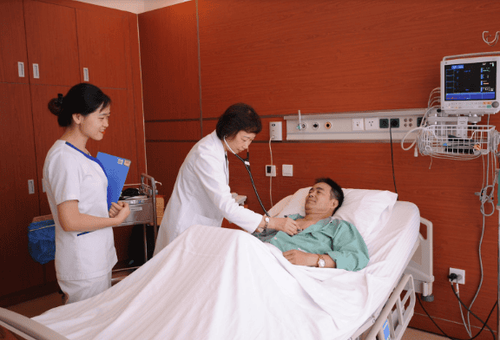
Điều trị sốc nhiễm trùng
4.1 Use of vasopressors in the treatment of septic shock
In the treatment of septic shock, Norepinephrine and Dopamine are the preferred initial vasopressors because Norepinephrine acts on alpha 1 receptors more strongly than Dopamine and is more effective in lowering blood pressure in patients with functional impairment. systole.
Compared with Epinephrine and Phenylephrine, Norepinephrine and Dopamine have more advantages. In the treatment of septic shock, Epinephrine, Phenylephrine, and Vasopressin should not be used as initial vasopressors.
Currently, there is no evidence that the use of Epinephrine is dangerous in the treatment of septic shock. Therefore, epinephrine should be used as the first-line agent in the treatment of septic shock when hypotensive patients respond poorly to norepinephrine or dopamine. To optimize the therapeutic effect of Norepinephrine, Vasopressin doses of 0.03-0.04 units/min should be added.
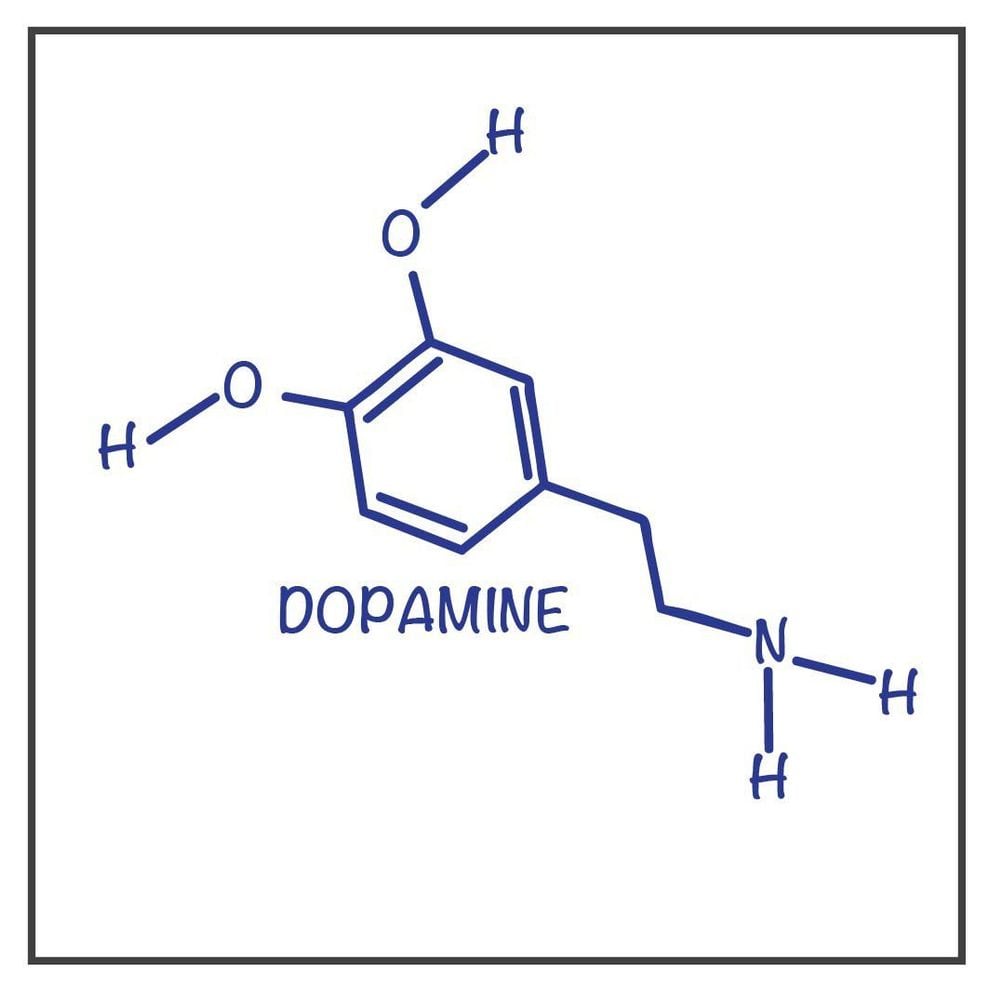
Dopamine là thuốc được sử dụng phổ biến trong điều trị sốc nhiễm trùng
4.2 Dosage of vasopressors in the treatment of shock
Dosage of vasopressors in shock treatment is as follows:
Norepinephrine: dose of 0.05 - 0.1 mcg/kg/min, can cause side effects such as tachycardia. Epinephrine: dose from 0.05 to 0.5 mcg/kg/min, can cause side effect is tachycardia. Dopamine: dose on DA receptors = <5 mcg/kg/min, beta 1 from 5 to 10 mcg/kg/min and alpha 1 from 10 to 20 mcg/kg/min, the drug can cause a side effect of rhythm. tachycardia and arrhythmia. Phenylephrine: 0.5 - 5mcg/kg/min dose, the side effect of this vasopressor is to cause reflex bradycardia. Vasopressin: dose on V1 receptor is 0.04 units/minute, can cause side effects are tachycardia, arterial ischemia, skin lesions. Dobutamine: dose 5 - 20 mcg/kg/min, the drug causes arrhythmia side effects, lowering blood pressure. Vasopressors in shock treatment are the first choice when the patient has been managed with intensive care, adequate fluids to restore tidal volume, but hypotension has not improved.
Vinmec Cardiology Department has always received much praise and satisfaction from domestic and international customers, being pioneers in successfully applying the world's most advanced techniques in the treatment of cardiovascular diseases. .
A team of highly qualified and experienced specialists: qualified doctors from Master's to Professor's and Doctor's degrees, reputable in medical treatment, surgery, interventional cardiac catheterization. Intensive training at home & abroad. In particular, Prof. TS.BS Vo Thanh Nhan - Cardiology Director of Vinmec Central Park was recognized as the first and only expert in Vietnam to be awarded the "Proctor" certificate on TAVI. State-of-the-art equipment, comparable to major hospitals in the world: The most modern operating room in the world; The most modern silent magnetic resonance imaging machine in Southeast Asia; The CT machine has a super-fast scanning speed of only 0.275s/round without the use of drugs to lower the heart rate; The 16-sequence PET/CT and SPECT/CT systems help detect damage to the cardiovascular organs early even when there are no symptoms of the disease. Applying the most advanced advanced cardiovascular techniques in the world in treatment: Painless open heart surgery; Percutaneous aortic intervention without general anesthesia; Treatment of mitral regurgitation through the catheter has a success rate of 95%; Ventricular-assisted artificial heart transplantation for patients with end-stage heart failure prolongs quality of life beyond 7 years. Cooperating with leading cardiovascular centers in Vietnam and the world such as: National Heart Institute, Cardiology Department of Hanoi Medical University, University of Paris Descartes - Georges Pompidou Hospital (France), University of Pennsylvania (France), University of Pennsylvania (France), University of Pennsylvania (France). United States)... with the aim of updating the most modern cardiovascular treatments in the world. To register for examination and treatment with the leading doctors of the Cardiology Department at Vinmec International General Hospital, please click the "Contact Us" button on the website, or register for an online examination.
Please dial HOTLINE for more information or register for an appointment HERE. Download MyVinmec app to make appointments faster and to manage your bookings easily.




